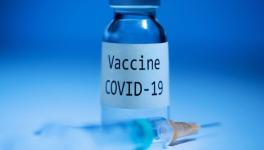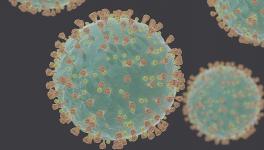Risk of Reinfection by Delta Variant low Among Unvaccinated Children, new Study Finds
A large cohort study conducted in Israel has brought in some interesting facts. The study comprised of around 3,00,000 children and adolescents suggests that reinfection amongst them by the Delta variant, even if remaining unvaccinated, has a very low risk. The study has been published in the preprint server medRXiv. It found that even after a year and a half since the occurrence of the infection, the immune response was 80% as effective in preventing the reinfection.
However, the study says nothing clearly about how it would be in the case of infections caused by the Omicron variant. The omicron is still dominant in many countries. The current knowledge suggests that the immune response against the Omicron variant is less robust in either previously infected or vaccinated individuals.
Experts consider the findings a welcome addition to the knowledge about SARS-CoV-2 infection among children. “They’re a group for which we haven’t seen a huge amount of data to date”—commented Nigel Crawford, a paediatrician in Melbourne, highlighting the importance of such findings.
The researchers of the study collected coronavirus infection data during the period July to December 2021, the period when Delta was dominant in Israel. They obtained the data from Maccabi Healthcare Services, which is health insurance based in Israel.
Their analysis of the data revealed that children and adolescents were about 89% less likely to be infected with the coronavirus within 3 to 6 months after their first infection in comparison to those not infected previously. Again, for the age group of 12-18 years, the protection against reinfection was found to get dropped to 82% from 9 months up to a year after the first infection.
However, the researchers found that the immunity remained stable at that level up to 18 months post-infection. Children in the age group 5-11 years were found to maintain the same level of protection which is concordant with the observation that children experience milder Covid in comparison to adolescents and adults.
Hossein Estiri, a clinical data scientist at the Harvard Medical School in Boston, said that the study design is robust. However, he cautioned that the findings in no way suggest the deterrence of vaccination amongst children. He also pointed out that the study lacks in finding how well the protection from natural infection is comparable to that provided by vaccines. “And because severe COVID-19 is rare in children, the study could not make strong conclusions about protection from serious illness and hospitalisation. We know that a lot of vaccine efficacy is against severe disease," he said further.
Nigel Crawford adds that people who got an infection by the coronavirus and are also vaccinated manifest much stronger immunity in comparison to those who have received either one. “You wouldn’t want to rely purely on infection alone for immunity. We have no idea what the next wave will bring,"—Crawford cautioned in a statement.
Get the latest reports & analysis with people's perspective on Protests, movements & deep analytical videos, discussions of the current affairs in your Telegram app. Subscribe to NewsClick's Telegram channel & get Real-Time updates on stories, as they get published on our website.























